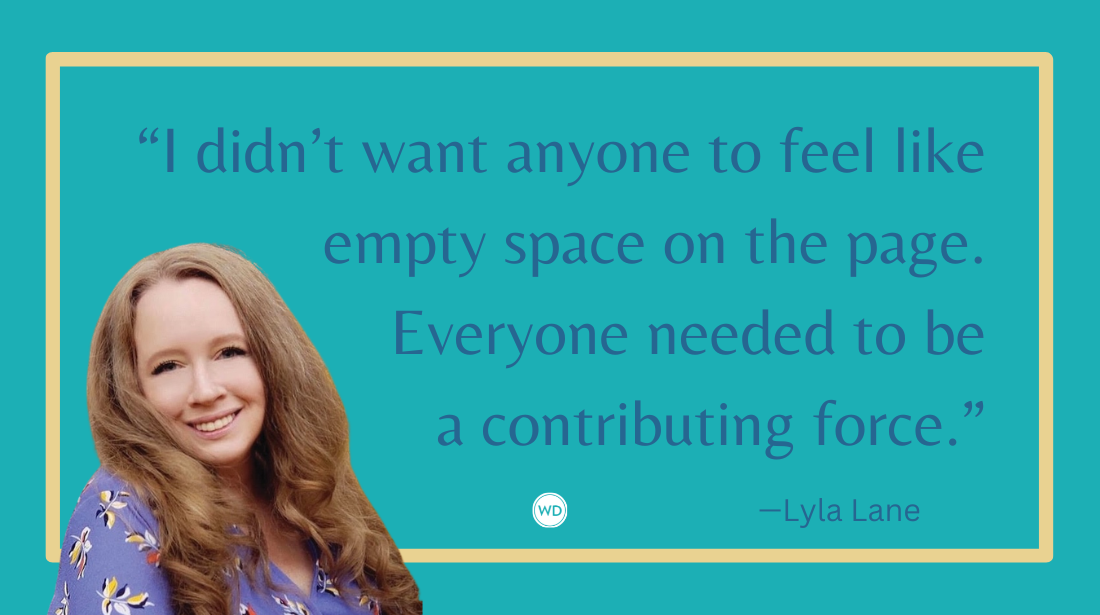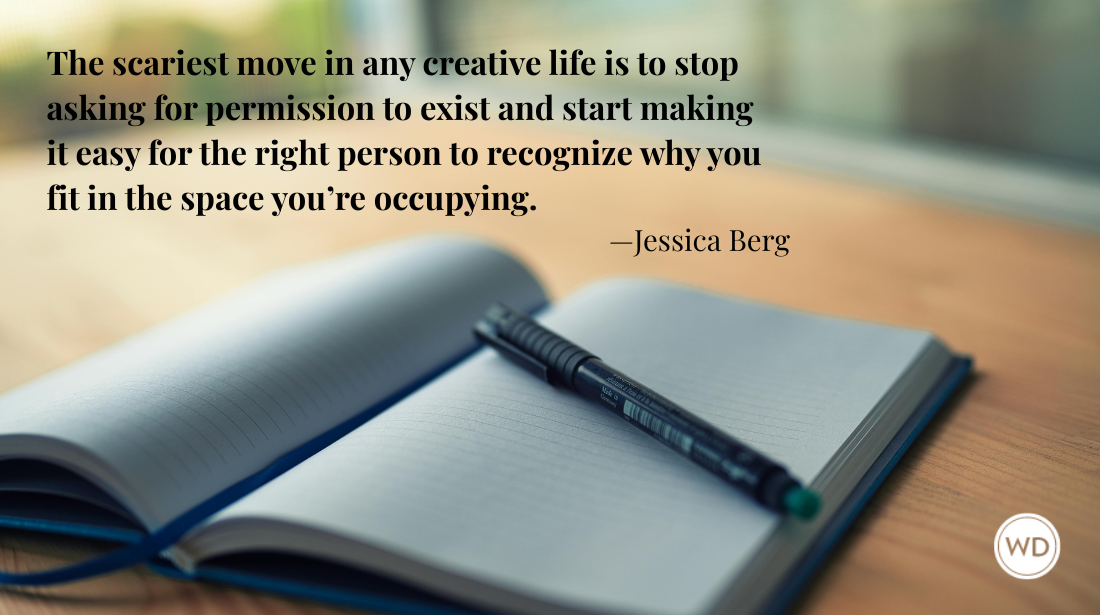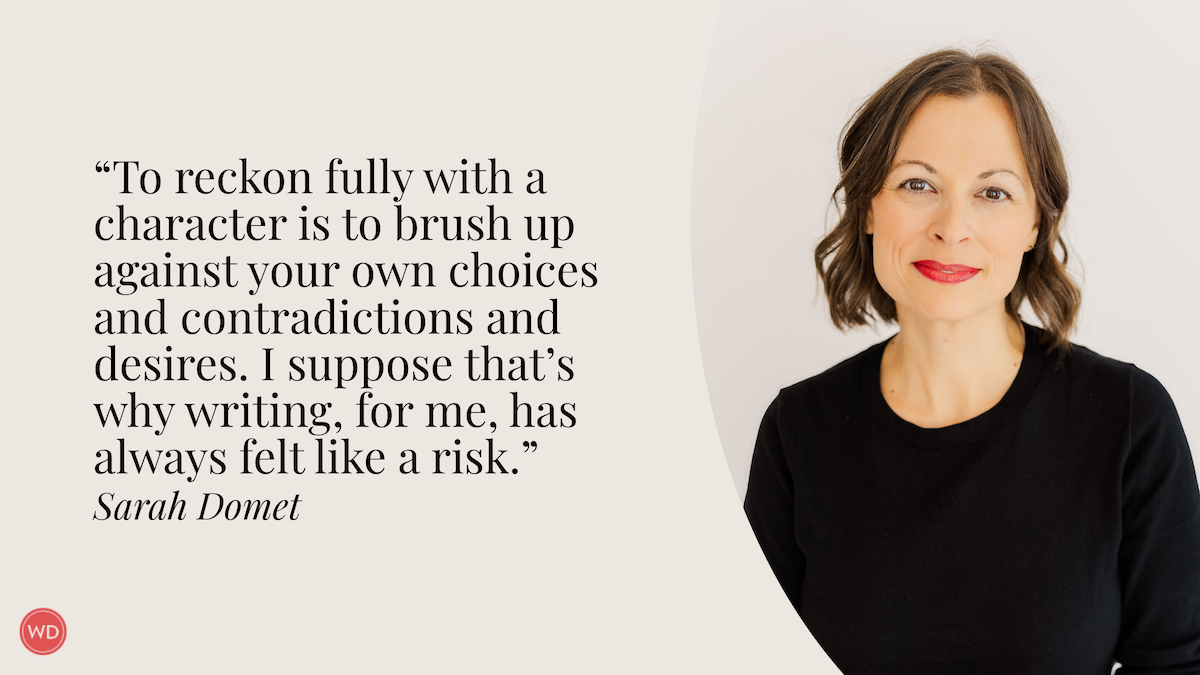A Blessing for Writers and Storytellers in 2023
Author and trained fighter Carla Hoch reflects on her recent loss and the enduring power of the stories we tell.
I generally start thinking about my monthly FightWrite™ post several weeks before it is due. Yet, without fail, I come up with a new idea at the last minute that inspires me more, and all previous plans are thrown out the window. I’m sure this month would have been the same had the landscape of my life not drastically transformed. The abrupt change reminded me that far more important than a well told fight scene is the abiding need of storytelling itself.
On December 20, my mother died. Her health had been poor but her passing was unexpected. The call came in the middle of the night. I had just returned from a trip to see her; my plane had landed only hours earlier. When my sister told me I propped myself up on my elbow in bed and asked her to repeat herself. She again said that mom’s heart had stopped and they couldn’t bring her back. After a quiet moment I asked, “So, she’s dead?”
"Yes," my sister affirmed, voice weak, “Mom is dead.”
The funeral was in Pensacola, Florida, the home and heritage of my mother’s people. Before the grave side service, a half dozen of us walked through the cemetery. My first cousin strode ahead of us pointing out family headstones and telling or reminding us a bit about each family member beneath it. There was my riveter grandmother who maintained the planes at Naval Air Station Pensacola during World War II. She rested between her twin and her older sister, my beloved great aunt in whose lap I learned to read before kindergarten. My primer was an ever-fresh copy of the National Enquirer.
Near my grandmother and her sisters were my uncles who helped construct some of the oldest buildings in Pensacola and plant some of the oldest churches. Whenever their names were said, the words, “fine, godly men,” generally followed. And, then for some reason, smack in their midst was a not-so-distant cousin. “Now, that’s her husband next to her,” my cousin said, pointing with one hand, the other on her hip. “They got into a fight over a car and she put six bullets in his chest. So, there’s that.”
Across the property were my mother’s sisters. The oldest, my first cousin’s mother, is buried to the right of my Navy Yeoman uncle who typed up the invasion orders of Okinawa and was living in Cuba with my aunt and her baby sister, my mother, when he typed up the plans for the Bay of Pigs. “Daddy had a high security clearance,” my cousin said, looking over the top of her glasses at us. “The CIA came and talked to us about something one time. I don’t remember what. So, there’s that.”
After her daddy’s death, her mother, my sweet, soft-spoken aunt’s house was robbed. In response she took possession of a country security system: a gun and white wolf dog, both big enough to scare Nosferatu. My aunt could silence him into a seated position with nothing more than a simple, “All right now.”
To the right of that aunt was the middle sister, for whom my older sister is named. She was a nurse in the 50s when she, as she often reminded us, still had a 21-inch waist. She raised her husband’s nephews who simply moved in with them, no legal adoption, as well as a constant stream of no less than six cats and dogs at the time. When it was time to feed the animals, she would call out,“Freenies, freenies, freenies,” that is to say, “Hot dog weenies,” even if the food du jour was not, in fact, weenies, and all her pets plus several more strays would come running. As they did, she would sing out an original rhyme, never the same one twice.
Later in life she became a decorated poet. She took me with her to writer’s meetings, poetry conclaves she called them, when I was still in elementary school. As we drove, she would advise me on life which she did until her passing. Once, in my early 20s, I asked her if I should break up with a man I had been dating. Instead of a yes or no, she replied, “Well, this morning your uncle called out to me, ‘Where’s lunch, b***h?’ So, there’s that.” I broke up with the guy soon after.
To the right of my poet aunt that day, was a gaping maw in the earth which would hold my mother. Beyond the velvety layers of vanilla, maroon, and chocolate loam was a cement container that would protect my mother’s casket from the Florida damp. I backed away, closed my eyes, and breathed in the cold humidity of the overcast day. I then looked down at myself, my black dress dappled with dew that fell from the trees, my shoes bedazzled with sandspurs and flecked with grass seeds, then around at the darkly clad crowd and had to smile.
This is the scene mom would have wanted in the final page of her story: a gray day, brilliant flowers, faint sounds of despair, people guilt-ridden for not calling her more, me “dressed in something decent for a change,” my make-up that “it wouldn’t kill me to wear” streaked by trails of tears, and in the midst of it all, her—the star of the show.
Mom had been planning her funeral basically since birth. Her going over the particulars of her final farewell was as common in our house as prayer and we prayed a lot because my daddy was crazy. (So, there’s that.) She would have loved it all. Correction, she did love it all. And, I know she was pleased by everything except the fact I didn’t wear support pantyhose or have a handkerchief in my hand like a decent Southern lady.
IndieBound | Bookshop | Amazon
[WD uses affiliate links.]
I say all of this because, more than ever, I’m keenly aware that what endures after our bodies fail isn’t the stuff. It’s the stories. This thing we writers do, storytelling, is sacred. And the novels we write are examples of that. Whether we write fiction or nonfiction, when people read our words, they acquaint with what is at the heart of anything we type: a tale told well. The more stories someone reads, the better able they are to tell them. And if there is any extinction we must rail against, it is that of stories. They moor us to the past, steady us in the present and are harbingers of hope or fair warning for the future.
Our words more than matter. They are requisite, especially now. I was told recently, by someone who clearly did not consider death near enough, that one day AI would do the writing. Our very human gift would be defunct. With a scant few sand spurs still on my funeral shoes, I can tell you that will never happen.
AI might report an event, but they will never tell a story. They might record a moment in time and ascribe adjectives and adverbs to it. But no AI will ever have the capability to relate the brutality and beauty of sadness and the strange terror that can come with joy. They will not know that when you smell a baby’s head, your eyes close. They will not know how the soul swells when you hear your children laughing together nor the hollowness of being completely alone in a room full of people. They will not know the smell of coffee or rain on the way. They will not know the lunacy that comes from a pandemic lockdown or the simple yet very necessary joy of walking barefoot on soft grass under a warm sun. No C3-PO will ever understand that one of the most surreal things about death is that everyone else is still alive and for days you want to run outside and cry out for everyone to just stop. Please, stop.
In short, no AI will ever be human, which is a thing we writers specialize in. We are professional humans who obsessively hoard sensory details and emotions. That is our gift. That is our charge. And, if I have any blessing for you in the coming year it is this—that you all feel the fullness of what it is to be human and write it down. Tell the stories. All of them and all of it. Leave out nothing. Write the things that scare you, that you are afraid to feel, that make you laugh. Write the things you understand and what you never will or should. Write the stories. When the future strides through the graveyard of the present that has long since become the past, it is the stories that will remain and cling to its funeral shoes.
So, there’s that.
Carla Hoch is the award-winning blogger of FightWrite® and author of the Writer’s Digest book Fight Write: How to Write Believable Fight Scenes. She is a WDU instructor who regularly teaches on the craft of writing fight scenes, action, and violence as well as the mechanics of fighting for writers. Carla is a world champion jiujitsu player and has experience in almost a dozen fighting styles. She lives and trains outside Houston, Texas.







